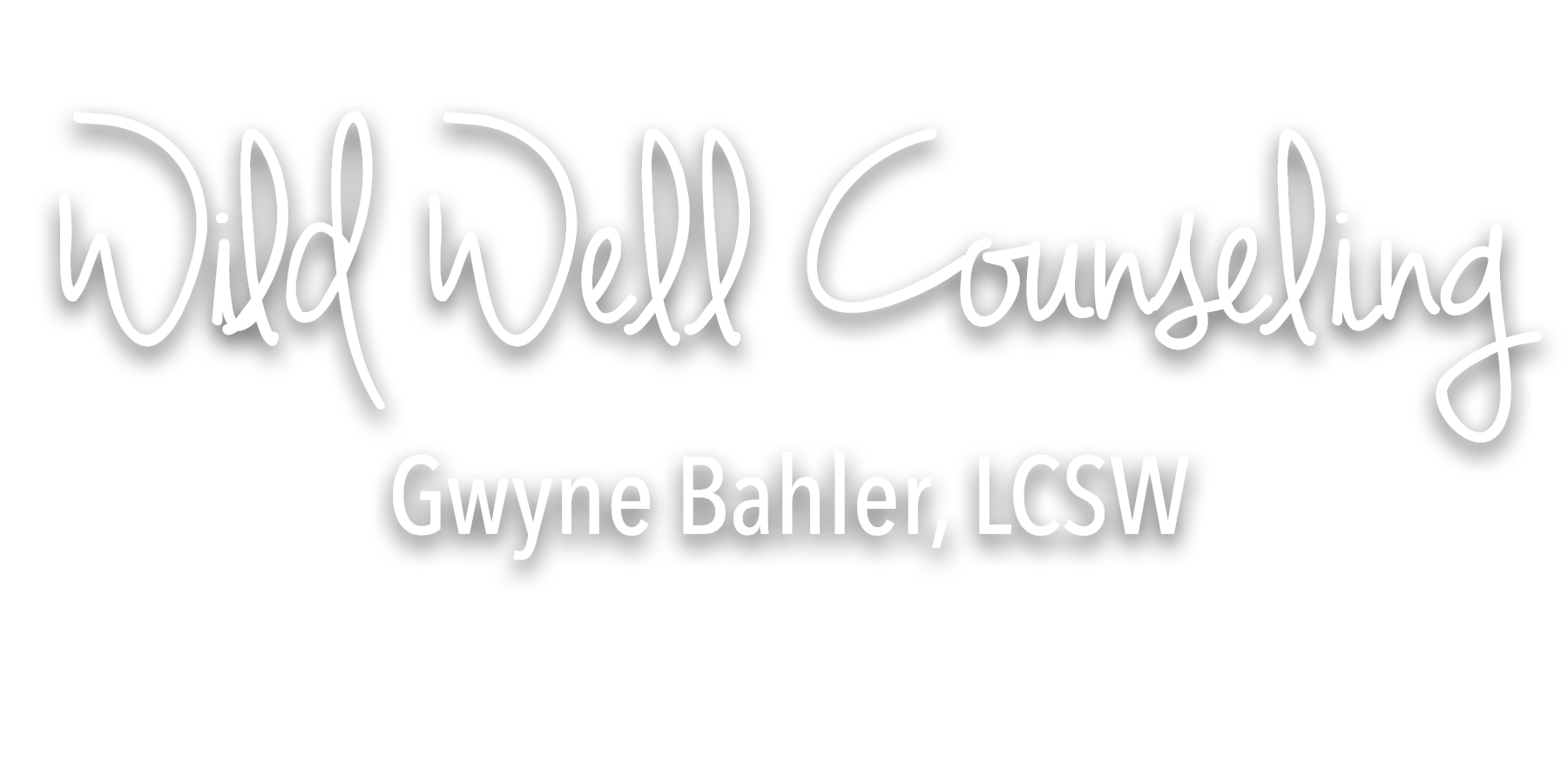Narcissistic Personality Disorder is defined in the DSM as having an inflated sense of self, need for excessive admiration, exploitative interpersonal behaviors, a sense of entitlement, envy of others, arrogance and a lack of empathy. While this describes what most people recognize as “grandiose narcissism,” most experts believe there are subtypes in how narcissism actually presents depending on personality type.
The term “covert narcissist,” sometimes used interchangeably with “vulnerable narcissist,” describes a person who meets criteria for NPD, but may be harder to spot. Unlike overt narcissists, they don’t take up much space in a room. In fact, they may have social anxiety or seem insecure. I would argue that while most introverted narcissists are covert, not all covert narcissists are vulnerable.
Vulnerable narcissists tend to have traits more aligned with Borderline Personality Disorder such as low self-esteem, unstable self-image, emotional volatility and self-harming tendencies. Unlike individuals with Borderline Personality Disorder, they lack emotional empathy. Yet, they may successfully masquerade as empaths.
When I think of vulnerable narcissism, what comes to mind is often the kind of “guru’ who presents himself as a deeply spiritual person and committed to helping others. Then you find out they’ve been preying on those they purported to “help” the entire time.
We tend to associate the capacity for strong emotions with empathy.
But the truth is, empathy is more than just a capacity for emotional intensity. Just because a person is able to feel strong emotions does not mean they care about yours.
Let me repeat that.
Just because a person is able to feel strong emotions does not mean they care about yours.
I could write a whole post just about that one sentence and how it applies to many people besides narcissists, but I digress.

Source: Psychology Today
Without getting into a very dense discussion on all the complexities of the narcissistic personality, one major factor differentiates a vulnerable narcissist: shame.
Shame is always bubbling just below the surface and creates a neurotic and emotionally volatile personality that can mask their lack of empathy. This makes them the most damaging type of narcissist because they are the most difficult to detect. And the most successful at weaponizing guilt against their victims.
So what do you need to know to recognize them?
They may come across as highly empathetic.
In the beginning, the emotional volatility may be less apparent, especially if they are idealizing you. They may be able to describe their feelings with a lot of depth and self-awareness, which may masquerade as emotional intelligence or “high E.Q.”
It’s not uncommon for narcissists to claim to be empaths. And they may truly believe that they are empaths. They frequently hold jobs in helping professions. They could be teachers, counselors, pastors, spiritual guides, youth care workers or nurses. The vulnerable narcissist can appear as an upstanding member of the community, a loyal church go-er, a philanthropist. Only people very close to the vulnerable narcissist will ever see the mask slip.
Their love bombing looks different.
When people think of love bombing, they typically think of the big, elaborate gestures that are typical of grandiose narcissists. Expensive gifts, exciting vacations, big nights out. Vulnerable narcissists may utilize some of these tactics. You might get flowers or romantic dates in the beginning. But you may also notice the vulnerable narcissist seeming resentful about paying for things or isn’t very proactive about planning. They may have a sob story about their finances that puts you in a position to always pay out of guilt.
You may expend a lot of energy introducing them into new social situations or facilitating new experiences. It might even seem like they had no life before you. They may appear to enjoy this at first, but later guilt you for wanting to spend time with friends and family. Your world will get smaller and smaller to accommodate the fragility and anxiety of the vulnerable narcissist.
While grandiose narcissists may lay on the compliments and romance thick, the vulnerable narcissist is uniquely capable of making you really believe it. In the beginning, you may feel like you’ve met the perfect person. You’ve never been with someone so genuinely interested in you as a person. They make you feel seen. They want to know everything about you. Their compliments are unique and personal. They encourage your vulnerability. It’s not uncommon for covert or vulnerable narcissists to invite discussions about trauma early on. But it’s only a means to establish trust and emotional dependence.
They may share things with you they say they’ve never shared with anyone. And you may be inclined to reciprocate. In reality, they are gathering information about your insecurities to exploit and manipulate you with later.
If a grandiose narcissist is good at mirroring your interests and personality, a vulnerable narcissist is a master of mirroring your very soul. Your values, your vulnerabilities, your trauma, your romantic dreams, your insecurities… the vulnerable narcissist matches you on a deeper level.
But inevitably, the devaluation sets in, and your soulmate is suddenly a stranger.
They are codependent.
The common thinking is that narcissists don’t care about anyone except themselves. This is true to some extent. Narcissists lack emotional empathy, which prevents them from forming authentic and reciprocal human connections. They view others as objects and tools that serve a purpose to them. That purpose is always narcissistic supply. Narcissistic supply is the fuel that provides them with dopamine and also bolsters the “false self.” All narcissists seek out approval and validation that allows them to maintain a positive self-image of themselves. They will look for supply (in the form of relationships) that provides the most potent and productive supply.
People who are unable to recognize the narcissist for what they are make the most valuable supply. This means when you see the narcissist for what they are, even if your intentions are loving, the devaluation will start.
So in this sense, all narcissists are dependent on others. The narcissist cannot survive without a steady drip of narcissistic supply. This is why they either move on quickly from relationship to relationship and almost always cheat physically or emotionally. One source is never enough. Even if they seem codependent on you, your supply will always grow stale, and they will always seek out new, fresh supply.
Unlike a grandiose narcissist, the vulnerable narcissist may appear so codependent that it’s hard to imagine them as narcissistic. When you meet them, you may notice they have few friends and hobbies outside of you. They make you feel like you are the only source of their happiness and meaning. (This is a red flag in any relationship.)
Your empathy is a threat to their survival.
No relationship is healthy when one person is the other person’s entire reason for existing. To a non-narcissistic codependent, this dynamic may seem intensely romantic. But it won’t feel that way for long. It is a recipe for a long-term toxic dynamic where both the vulnerable narcissist and the non-narcissistic codependent feed into each other’s weaknesses in an endless loop. The codependent will inevitably enjoy the overwhelming attention from the narcissist and work hard to keep the narcissist from leaving during the narcissist’s devaluation phase. Then they will keep coming back after the inevitable discard. This codependency offers potent and continuing supply to the narcissist.
A healthy partner, on the other hand, will feel smothered and put off by the narcissists’ lack of independence. They may encourage the narcissist to have a life outside of the relationship or set healthy boundaries on their time or the intensity of the narcissists’ attention. They will refuse to coddle the vulnerable narcissist and encourage the narcissist to seek help. They will insist they improve their emotional health for the sake of the relationship rather than enabling it or feeding off the sense of satisfaction they get from “saving” the vulnerable narcissist.
Healthy and secure partners will cause the vulnerable narcissist to get bored because that person does not provide enough emotional turbulence to be an adequate source of supply. The devaluation and discard can come on quickly and brutally when a vulnerable narcissist finds a healthy partner. And this can leave the healthy partner baffled. After all, the healthy partner was just trying to support them and help them be the best version of themselves in the most genuine and loving way! Seems like a good thing, right? But this is well-intentioned supportiveness is not received as such. It is received as a form of unmasking, which only feeds their shame.
A healthy individual receives loving support as, “This person cares about me and wants me to be happy and make our relationship better.” The vulnerable narcissist hears, “This person is seeing the real me and knows something is wrong. If I don’t reject them now, they will see who I really am.”
Something will always be wrong with them
A lot of self-aware narcissists will tell you they have limited emotional range and mainly experience negative emotions. However, grandiose narcissism is not associated with depressiveness. In fact, grandiose narcissists sometimes score higher on “happiness” indexes and experience less anxiety than other individuals. They have low levels of emotional volatility and neuroticism.¹ The opposite is true for the vulnerable narcissist.
Once their initial love-bombing phase wears off, you may notice they are constantly vacillating in a state of shame, guilt, anger, rage, depression or contempt. Some vulnerable narcissists are prone to frequent somatic complaints or illnesses. Others are chronically depressed or have dramatic mood swings. Others are prone to rumination about trauma or appear melodramatic.
You may feel that these individuals always have something going on, something wrong, something to stress over. They may seem like they don’t want it to be your problem, but somehow, it becomes your problem as your empathy is subtly manipulated and exploited. This is how the vulnerable narcississt operates. They might tell you that you shouldn’t have to worry about something, but they will find a way to ensure that you do.
Friends and family might assume you just aren’t being sensitive enough to their needs. The vulnerable narcissist might even reinforce this to others, especially if you’re in the devaluation stage. Vulnerable narcissists are clever victims, and they can be masters of making others believe you are the one who lacks empathy when you simply refuse to coddle them or set emotional boundaries for yourself.
They seem caring so you will care for them.
Of course, this caring doesn’t last. You’ll notice that once they have you bought in, this overwhelming attentive and validation starts to wear thin. If they were all about asking you questions and taking interest in your day, you’ll start to see this drop off, usually in a rather dramatic way. Whereas once they were interested, supportive and attentive when you had a problem, suddenly the responses slow and get shorter. This is usually when you also start to notice some of the neurotic tendencies come out.
At first they may even apologize or seem self aware: “Sorry to trauma-dump on you” or “I’m not usually like this” or “You just met me when I’m going through a lot.” This triggers your empathy. You want to be supportive. You want to get them through it! After all, they’re so amazing and you’ve never met anyone like them, so you can see all that potential, all that gold at the end of the rainbow. If you can just hang in there, eventually things will be okay.
But you realize slowly that you never know what to expect from this person. Their moodiness and inconsistency keeps you on edge. Someone who once gave you such peace and security is now making you feel anxious and insecure. Their fight becomes your fight, and you’re suddenly finding that you’re emotionally exhausted by how much energy you expend talking them down, reassuring them, listening to their problems, taking on their various dramas.
You think, “If I can just get them through this rough patch, they’ll be the happy, attentive person I met in the beginning. They’re just going through a lot. I need to be sensitive and be here for them to show them I care.”
The truth is, this is who they are, and no matter how much you give, it will never be enough.
You can’t love them enough.
Most vulnerable narcissists develop narcissism as a response to inconsistent caregivers in childhood. They have childhoods where love is blended with guilt and shame. They learn early that the same people who claim to love them may also hurt them. Trust in intimacy is shattered and unconditional love is not understood. Exposure and vulnerability are terrifying, and their narcissism forms in order to protect the child who never felt worthy enough.
Narcissism can be seen as a shell that protects the vulnerability of the ego. While a grandiose narcissist may have a shell so thick that it provides effective protection from anxiety, guilt and shame, the vulnerable narcissist’s shell is weak. And the lengths taken to protect it become more reactionary.
Though narcissist can cause tremendous pain, they are human, too. Narcissism, especially vulnerable narcissism, is not created in a vacuum. It is almost always the result of traumatic events early in life and poor caregiving. You are not wrong to have empathy and compassion for these individuals.
While some evidence suggests grandiose narcissists, especially those who have high antisocial traits, tend to be happier, less anxious people,¹ vulnerable narcissists suffer tremendously. They experience high levels of depression, anxiety, shame and guilt. They have unstable relationships and low self-worth. They are unable to give and receive love in a healthy way, which means they miss out on one of the most joyful parts of the human experience.
It may be tempting for a truly empathetic person to believe they can “be the one” to love the vulnerable narcissist enough that they love themselves and can finally heal. But you cannot love someone into loving themselves.
They may seem like a worthy project
When you understand why the vulnerable narcissist is the way they are, they may seem like a worthy project. After all, they can be the masters of the sob story. And a lot of times, these stories have truth. You don’t develop vulnerable narcissism if you had healthy, consistent love and validation.
Some vulnerable narcissist can become self-aware and seek therapy to address their emotions and behaviors. As someone who works with people who have personality disorders, I am not a clinician who parrots the aphorism that “narcissists never change.”
They can. However, it is rare for a vulnerable narcissist to seek out therapy to treat their narcissism. Generally, these individuals will seek out therapy to address symptoms such as anxiety and depression. Because they can feign emotional self-awareness, they usually go undetected even by skilled clinicians.
For a vulnerable narcissist to truly heal, they have to reach a point where their pattern in relationships becomes intolerable to them and where they can truly become vulnerable to others. Vulnerable narcissists experience shame and self-loathing so intense, to confront it would seem unbearable. To confront the guilt, shame, self-loathing and pain that underlies narcissism would be like descending into hell and finding a way back out.
Some people with NPD are strong and tenacious enough to take this path, but most are not. Do not assume you can inspire a person with vulnerable narcissism change by simply making them aware of themselves.
If you know or are in a relationship with someone like this, worry about protecting yourself. They will choose and find healing if they want it. You deserve a person who can give and receive love fully. You do not deserve abuse, and you are not responsible for another person’s pain or maladaptive methods of dealing with it. Find peace in yourself and protect that peace with everything in you.
-
Loeffler, L. A. K., Huebben, A. K., Radke, S., Habel, U., & Derntl, B. (2020). The Association Between Vulnerable/Grandiose Narcissism and Emotion Regulation. Frontiers in psychology, 11, 519330. https://doi.org/10.3389/fpsyg.2020.519330







